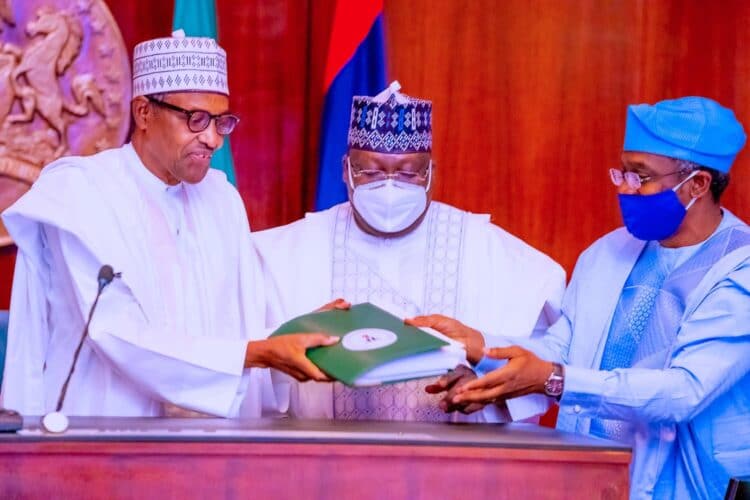Nigeria News
10 Major Highlights Of The 2022 Amended Electoral Act

Following the signing of the Electoral Act Amendment Bill into law on Friday by President Muhammadu Buhari, ten major highlights of the law have been spotted.
Naija News reports that the signing was done at the Council Chambers of the Presidential Villa, Abuja at about 12:30 pm after several postponements and rejections.
The Nigerian leader assented to the bill in the presence of the Chairman of the Independent National Electoral Commission INEC, Mahmood Yakubu; President of the Senate, Ahmed Lawan, Speaker, House of Representatives, Femi Gbajabiamila.
The 2022 Electoral Amendment Bill, which is an amendment to the 2010 Electoral Act, would help strengthen the country’s electoral process and deepen Nigeria’s democracy.
Below are the major highlights of the electoral act:
Early release of election funds to INEC
Clause 3(3) of the bill provides that all funding required for a general election is released not later than one year before the general elections. This obviously will help the electoral body to prepare well in advance.
Electronic transmission of results
According to Clause 50 of the electoral bill, INEC has the authority to decide whether election results are sent electronically or manually.
Right to review election results declared under duress
Clause 65 of the electoral bill empowers INEC authority to evaluate declarations and returns made under dubious circumstances. The measure will radically alter the results management process, discouraging politicians from pressuring election workers to declare manufactured election results that can only be disputed in court.
Electronic voter accreditation
Clause 47 of the electoral bill allows voters to be electronically accredited using Smart Card Readers or any other technical equipment determined by INEC.
Persons with disability are included
As Clause 54 (2) stipulates, INEC is required to ensure that persons with disabilities, special needs, and vulnerable people are assisted at polling places by providing appropriate means of communication, such as Braille, large embossed print, electronic devices, sign language interpretation, or, in appropriate cases, off-site voting.
Overvoting redefined
Overvoting happens when the total number of accredited voters in a polling unit exceeds the number of votes cast in that polling unit.
Clause 51 stipulates that the “total number of accredited voters” will become a deciding factor in the election’s legality.
Early conduct of party primaries and submission of candidates’ list
Referencing Clause 29(1) of the 2022 electoral bill, each political party must submit its list of candidates to INEC, who must have arisen from lawful primaries held by the political party, not later than 180 days (6 months) before election day.
Early commencement of campaigns
According to Clause 94 of the electoral bill, political parties’ public campaigns have been extended from 90 to 150 days before polling day and will finish 24 hours before that day.
Candidate substitution in the event of death in an election
Clause 34 of the electoral bill 2022 allows political parties to hold primary elections to replace a candidate who dies after the polls have begun but before the final results are announced and a winner is declared.
In the case of legislative elections, the election will be re-run, and a bereaved political party can have a new primary within 14 days to nominate a new candidate.
Concerning presidential and governorship elections, the deceased candidate’s running mate will continue the election and select a running mate.












